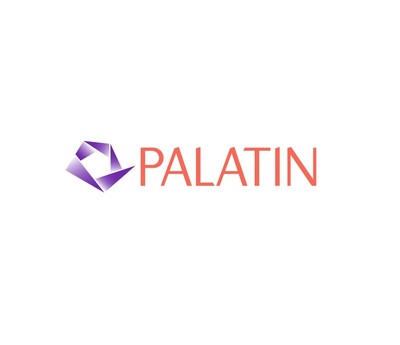
| Ouverture: | - |
| Variation: | - |
| Volume: | - |
| + Bas: | - |
| + Haut: | - |
| Ecart + Bas / + Haut: | - |
| Type: | Actions |
| Ticker: | PTN |
| ISIN: |
Palatin Presents Data on Novel Melanocortin 4 Receptor Selective Oral Small Molecule PL7737 Obesity Program at ObesityWeek® 2024
- 48
PR Newswire
CRANBURY, N.J., Nov. 4, 2024
- Oral PL7737 significantly decreased food intake and body weight
- Oral small molecule melanocortin 4 agonist (MC4R) could address unmet needs and challenges of current obesity treatments
- Multiple clinical trials targeted in calendar year 2025 for the Company's obesity programs
CRANBURY, N.J., Nov. 4, 2024 /PRNewswire/ -- Palatin Technologies, Inc. (NYSE American: PTN), a biopharmaceutical company developing first-in-class medicines based on molecules that modulate the activity of the melanocortin receptor (MCR) system, today announced that preclinical data from the Company's melanocortin 4 receptor (MC4R) selective PL7737 obesity program will be highlighted in a poster presentation at ObesityWeek® 2024, the annual meeting of the Obesity Society held in San Antonio, Texas. PL7737 is a highly selective, orally active, small molecule MC4R agonist being developed for the treatment of various metabolic disorders.
The presentation illustrates and summarizes preclinical studies of the effect of orally administered PL7737 on body weight and food intake in diet-induced obese (DIO) mice and MC4R knockout (MC4R-KO) mice. The studies demonstrated that treatment with oral PL7737 significantly decreased food intake and body weight in DIO mice, but not in MC4R-KO mice, validating that decreased food intake and body weight was MC4R mediated. Additionally presented data showed that PL7737 lacked erectogenic activity, which is desirable for the intended indication. PL7737's emerging efficacy and safety profile supports its potential as an effective obesity treatment while minimizing side effects present in other MC4R agonists.
"The promising oral bioavailability and efficacy data highlights our expertise and efforts in melanocortin MC4R drug development," said Carl Spana, Ph.D., President and Chief Executive Officer of Palatin. "There is an unmet medical need for obesity treatments, and an orally active small molecule MC4R agonist could be a promising option for obese patients. We are excited to advance our obesity programs and start clinical trials in 2025 with our novel, long-acting MC4R peptide and small molecule compounds aimed at treating general obesity, weight loss management, and rare MC4R pathway diseases like hypothalamic obesity."
Palatin is currently conducting a Phase 2 clinical trial with the MC4R agonist bremelanotide in combination with tirzepatide, a GLP-1/GIP. Enrollment is complete, and topline results are expected in the first quarter of calendar year 2025.
The MC4R pathway plays a key role in the regulation of energy storage and food intake. The novel MC4R selective agonists being developed by Palatin could potentially play a vital role in treating obesity as monotherapy and/or combination therapy.
The poster (#627), entitled "Melanocortin Agonist PL7737 Causes Weight Loss and Decreases Food Consumption in Obese Mice," will be presented tomorrow, Tuesday, November 5th, from 2:30 to 3:30 pm Central Time by lead author John H. Dodd, Ph.D., Senior Vice President Research & Development at Palatin Technologies. Obesity Week is being held at the Henry B. Gonzalez Convention Center in San Antonio, Texas. A copy of the poster can be found on Palatin's website www.palatin.com under Resources.
About ObesityWeek
The preeminent international conference for obesity researchers and clinicians, ObesityWeek® is home to the latest developments in evidence-based obesity science: cutting-edge basic and clinical research, state-of-the-art obesity treatment and prevention, and the latest efforts in advocacy and public policy. Overcoming obesity requires multi-disciplinary approaches. This is the conference that encompasses the full spectrum of obesity science: from basic science research, to translational research and clinical application, to public policy; from diet, exercise, lifestyle, and psychology to medical and surgical interventions; from pediatric to geriatric to underserved populations. ObesityWeek® 2024 will be held November 2-6 in San Antonio, Texas1.
About Melanocortin 4 Receptor Agonists Effect on Obesity
Genetic analysis has identified the melanocortin 4 receptor (MC4R) of the paraventricular nucleus of the hypothalamus as playing a central role in appetite regulation. Genetic mutations that inhibit signaling in the MC4R pathway lead to hyperphagia, decreased energy expenditure and early-onset obesity; such mutations have been identified as the cause of several rare genetic obesity disorders. Agouti-related peptide is an endogenous antagonist of the MC4R that works with neuropeptide Y to stimulate appetite, whereas MC4R agonists such as α- and β-melanocyte-stimulating hormone promote satiety. Agonism of the MC4R therefore represents an attractive target for potential obesity treatments.
About Melanocortin Receptor Agonists
The melanocortin receptor ("MCR") system has effects on inflammation, immune system responses, metabolism, food intake, and sexual function. There are five melanocortin receptors, MC1R through MC5R. Modulation of these receptors, through use of receptor-specific agonists, which activate receptor function, or receptor-specific antagonists, which block receptor function, can have medically significant pharmacological effects.
Many tissues and immune cells located in the eye (and other places, for example the gut and kidney) express melanocortin receptors, empowering our opportunity to directly activate natural pathways to resolve disease inflammation.
About Obesity
Obesity, which is defined as a body mass index (BMI) ≥30 kg/m2, represents a rising worldwide public health concern. Obesity is associated with an increased risk of overall mortality and serious health conditions, including high blood pressure, high cholesterol, type 2 diabetes, coronary heart disease, stroke and certain cancers. Health-related quality of life is significantly lower among adults with obesity, and obesity is associated with increased health care resource use and high economic burden. Safe and effective obesity treatments therefore remain a critical unmet need. The global increase in the prevalence of obesity is a public health issue that has severe cost implications to healthcare systems. In the United States, about 42% of adults live with obesity, and one out of five teens between the ages of 12-19 live with obesity.
About Palatin
Palatin is a biopharmaceutical company developing first-in-class or best-in-class therapies based on molecules that modulate the activity of the melanocortin receptor systems, with targeted, receptor-specific product candidates for the treatment of diseases with significant unmet medical need and commercial potential. Palatin's strategy is to develop products and then form marketing collaborations with industry leaders to maximize their commercial potential. For additional information regarding Palatin, please visit Palatin's website at www.Palatin.com and follow Palatin on Twitter at @PalatinTech.
Forward-looking Statements
Statements in this press release that are not historical facts, including statements about future expectations of Palatin Technologies, Inc., such as statements about Palatin products in development, clinical trial results, potential actions by regulatory agencies including the FDA, regulatory plans, development programs, proposed indications for product candidates, and market potential for product candidates are "forward-looking statements" within the meaning of Section 27A of the Securities Act of 1933, Section 21E of the Securities Exchange Act of 1934 and as that term is defined in the Private Securities Litigation Reform Act of 1995. Palatin intends that such forward-looking statements be subject to the safe harbors created thereby. Such forward-looking statements involve known and unknown risks, uncertainties and other factors that could cause Palatin's actual results to be materially different from its historical results or from any results expressed or implied by such forward-looking statements. Palatin's actual results may differ materially from those discussed in the forward-looking statements for reasons including, but not limited to, results of clinical trials, regulatory actions by the FDA and other regulatory and the need for regulatory approvals, Palatin's ability to fund development of its technology and establish and successfully complete clinical trials, the length of time and cost required to complete clinical trials and submit applications for regulatory approvals, products developed by competing pharmaceutical, biopharmaceutical and biotechnology companies, commercial acceptance of Palatin's products, and other factors discussed in Palatin's periodic filings with the Securities and Exchange Commission. Palatin is not responsible for updating events that occur after the date of this press release.
Palatin Technologies® is a registered trademark of Palatin Technologies, Inc.
![]() View original content to download multimedia:https://www.prnewswire.com/news-releases/palatin-presents-data-on-novel-melanocortin-4-receptor-selective-oral-small-molecule-pl7737-obesity-program-at-obesityweek-2024-302294651.html
View original content to download multimedia:https://www.prnewswire.com/news-releases/palatin-presents-data-on-novel-melanocortin-4-receptor-selective-oral-small-molecule-pl7737-obesity-program-at-obesityweek-2024-302294651.html
SOURCE Palatin Technologies, Inc.

PR Newswire est une agence de presse américaine, située à New York spécialisée dans la publication de communiqués de presse.



